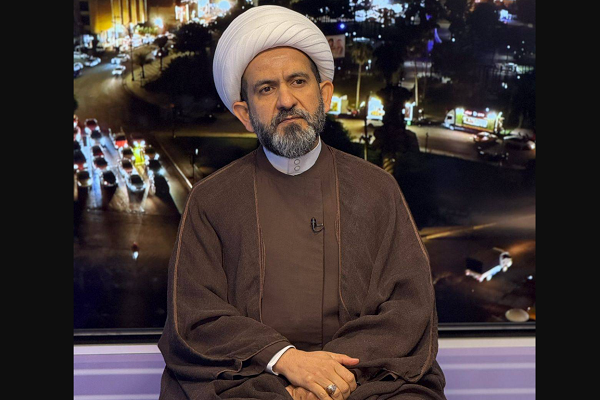Arbaeen March a ‘Comprehensive Civilizational Project,’ Says Iraqi Scholar

Sheikh Haider al-Shammari, a university professor and instructor at the Najaf seminary, said the annual Arbaeen march “is not merely a religious phenomenon or an act of worship, but a comprehensive civilizational project.”
Speaking to IQNA, he argued that the pilgrimage reflects a living nation inspired by the values of Imam Hussein’s (AS) movement—justice, altruism, dignity, and unity.
Arbaeen, observed 40 days after Ashura, marks the martyrdom of Imam Hussein (AS) in Karbala in 680 AD. Each year, millions of pilgrims, many of them walking the 80-kilometer route from Najaf to Karbala, take part in what is considered the world’s largest annual peaceful gathering.
The event attracts people from diverse nationalities and languages, with Iraqi hosts providing free food, water, and shelter along the way in an extraordinary display of hospitality and volunteerism.
“If you look at the scene of millions of participants from different nationalities and languages,” al-Shammari said, “you realize we are witnessing the foundations of a human civilization with an Islamic essence—where social cohesion, cooperation, and selfless altruism prevail, spiritual values take precedence over material ones, and class or ethnic barriers disappear.”
Read More:
The scholar outlined several core pillars of the event’s philosophy: loyalty and renewed allegiance to Imam Hussein (AS) as a symbol of truth and justice; the culture of collective walking as a way to strengthen communal spirit and faith identity; a historical responsibility to confront injustice; and embodying divine justice in the face of tyranny.
According to al-Shammari, “The Arbaeen march is not just a commemoration of a historical tragedy; it is an open annual front against the global system of arrogance. This gathering has the potential to create a collective and resilient awareness and to foster a culture of liberation across the Islamic nation.”
Crowds this year are expected to surpass 20 million, according to Iraqi authorities, with pilgrims traveling not only from within Iraq but also from Iran, Pakistan, Lebanon, Bahrain, Europe, and North America.
Organizers and local volunteers have set up thousands of mokebs—temporary service tents—to support the steady flow of walkers.
4299460



